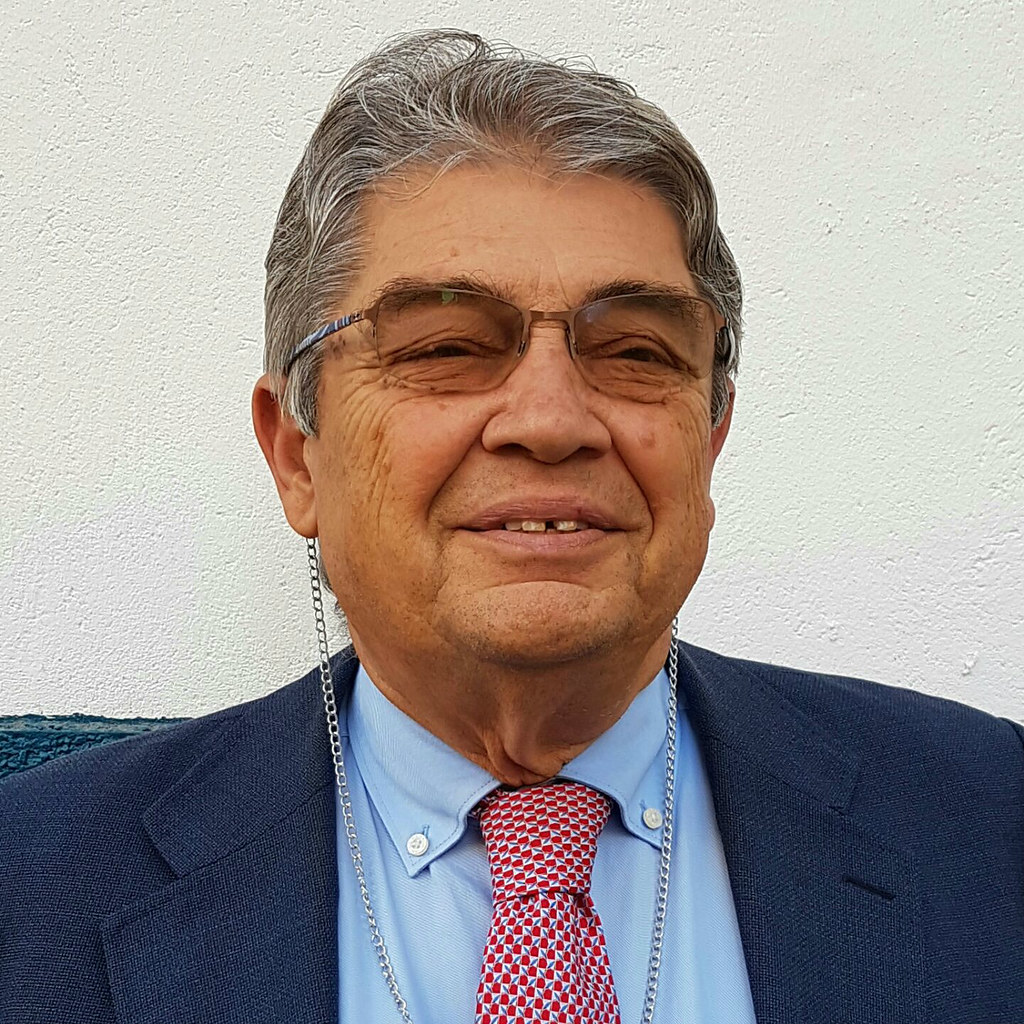Professor Michele Aresta is a pioneer of carbon dioxide chemistry. Over the past almost 40 years, his outstanding research contributions in the conversion of carbon dioxide have contributed to the recent change in attitude in the scientific community, industry and the public at large that carbon dioxide should no longer be considered as a waste to be disposed of but as a resource that can produce valuable products while at the same time contributing to the reduction of carbon emissions, one of the biggest challenges of our lifetime.
Michele Aresta received his degree in Industrial Chemistry from the University of Milan, Italy, in 1964, then moved to the University of Bari to work as a Research Assistant in the Faculty of Engineering. In 1968 he had his first contact with UK academia, as a post-doctoral researcher at the University College London working under Prof Sir R.S. Nyholm. He has made an outstanding academic career at Bari. This includes Professor of Inorganic Chemistry from 1975 to 2012; Head of Department (1986-1990), Dean of the Faculty of Environmental Sciences (1990-2002) and Founder and Director of the Interdepartmental Center on Environmental Methodologies and Technologies, (1990-2005). After retiring from the University of Bari, Michele was appointed Isaac Manasseh Meyer Chair Professor at the Department of Chemical and Biomolecular Engineering, National University of Singapore (2013-2016) and an Honorary Chair Professor in Chemical Engineering at the University of Tianjin, China. In 2015 we were delighted and privileged at his appointment as a David Parkin Visiting Professor in the Department of Chemical Engineering here at the University.
Michele is the author of numerous publications. To give just a few examples: his 1987 book on Carbon dioxide as a source of carbon is an essential textbook for those working in the area of carbon dioxide chemistry. His recent book Biorefinery: from biomass to chemicals and fuels has helped shape the growth of the emerging biotechnology sector in Europe and globally. In 1975 he published the first paper on transition metal complex bearing a carbon dioxide molecule as a ligand, which opened the field of CO2 chemistry. His 2007 paper in Dalton Transactions on Utilisation of CO2 as a chemical feedstock, co-authored with Professor Angela Dibenedetto, has been cited over 580 times. Throughout his career Michele has written over 250 scientific publications with over 6,000 citations.
As a graduate in Industrial Chemistry, Michele has always worked at the interface between Chemistry and Chemical Engineering, from understanding the fundamentals of carbon dioxide chemistry to licensing of patents for the production of high value chemicals from CO2 and biomass. This is the same ethos that characterises the Centre for Sustainable Chemical Engineering here at Bath, which involves close collaboration between the Departments of Chemistry and Chemical Engineering, and has made our collaboration with Michele in the past year so fruitful.
Michele’s contributions have been recognised in many ways. He was appointed President of the Inorganic Chemistry Division of the Italian Chemical Society (2005-2008) and Chair of the Inorganic Chemistry Division of European Chemical Society (2009-2012). He has also received several awards, including from the Italian Chemical Society for “Pioneering Work on Carbon Dioxide Activation (and Utilization)”, 1990; the Renoir Award for the Dissemination of Science, 1990; the Award of the Société Française de Chimie for Inorganic Chemistry, 1995; the Award of the Tianjin University, Tianjin China, for Green Chemistry, 2002; and the Gold Medal of the Italian Inorganic Chemistry Division in 2016.
Michele was the founder of the International Conference on Carbon Dioxide Utilisation, ICCDU, which has held its 14th meeting in Sheffield this September. Michele’s legacy in the Italian Chemistry Community endures via the creation of the Interuniversity Consortium on Chemical Reactivity and Catalysis, which brings together 18 universities with over 40 research groups in Italy, from fundamental chemistry to chemical engineering, all working on the topics of sustainable development and manufacturing.
Hopefully this gives a flavour of what Michele has achieved and his immense contributions as an industrial chemist. This is very impressive by any standards. But what is also important is how he has done this. Michele is a man of great personal integrity, warmth and generosity. His many former and current students and research partners can be found around the world and often visit him at this wonderful countryside home in Puglia, in the South of Italy. I know that all would agree that working with Michele is always challenging (in the best possible interpretation of that word) and enjoyable. He has a real talent for engaging people and opening up opportunities that enable them to develop. In the year he has spent at Bath as a David Parkin visiting Professor he has become part of the fabric of the Chemical Engineering Department, engaging not only in research with a number of colleagues, but also in our social and everyday life. As Head of Department I am very proud of that.
Michele is a-world-leading industrial chemist and continues to be a strong advocate for the power of science and technology to advance humanity while protecting our environment. He is an inspiring and enduring example to us all as a mentor, colleague and friend.
Deputy Vice-Chancellor and Provost, I present to you Professor Michele Aresta who is eminently worthy to receive the Degree of Doctor of Engineering honoris causa.
Professor Tim Mays
Orator
